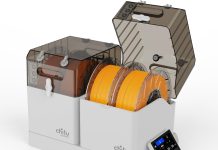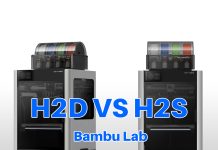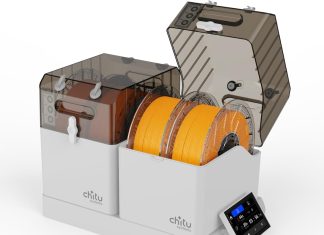In today’s environmentally conscious world, the demand for sustainable practices extends far beyond traditional industries into the realm of 3D printing. As more makers seek to minimize their ecological footprint, the choice of materials used in 3D printing has become paramount. The Anycubic M7 Pro, a leading resin printer, has positioned itself at the forefront by supporting a range of eco-friendly resins. This article explores the benefits of sustainable printing with style, focusing on eco-friendly resins specifically designed for use with the Anycubic M7 Pro.
The Shift Towards Eco-Friendly Resins
As awareness of climate change and plastic pollution becomes increasingly prevalent, the 3D printing community is beginning to pivot toward materials that are not only high-quality but also sustainable. Traditional 3D printing resins are often petroleum-based and can release harmful VOCs (volatile organic compounds) during printing. In contrast, eco-friendly resins are formulated to be less harmful to both the environment and the user. They are typically made from renewable resources, are biodegradable, or feature non-toxic components that maintain the high-performance standards of traditional resins.
Why Choose the Anycubic M7 Pro for Sustainable Printing
The Anycubic M7 Pro is designed for precision, versatility, and efficiency. Its advanced technology enables users to create highly detailed prints with excellent surface finishes, making it a popular choice for both hobbyists and professionals. But what truly sets it apart in the context of sustainability is its compatibility with a variety of eco-friendly resins. Users can achieve stunning results without compromising their commitment to environmentally friendly practices.
Key Features of the Anycubic M7 Pro
-
High Resolution: The M7 Pro boasts impressive resolution capabilities, allowing for the production of intricate designs that cater to both aesthetics and functionality.
-
User-Friendly Interface: With an intuitive touchscreen and easy setup process, users can quickly switch between resins, including eco-friendly options.
-
Efficient Printing: The M7 Pro’s advanced light source ensures an even curing process, resulting in fewer print errors and wasted materials.
- Versatile Material Compatibility: The ability to print with a range of resins, including biodegradable and low-emission options, supports the sustainable practices that users seek.
Exploring Eco-Friendly Resins
The market for eco-friendly resins has expanded significantly, offering various formulations that meet the diverse needs of 3D printing enthusiasts. Below are some notable eco-friendly resin options compatible with the Anycubic M7 Pro:
1. Bio-Based Resins
These resins are derived from renewable resources like cornstarch, soy, or other plant materials. Bio-based resins offer comparable performance to traditional resins, featuring high durability and excellent print quality while ensuring a lower environmental impact. They can often break down more easily at the end of their lifecycle, reducing long-term waste.
2. Water-Washable Resins
Water-washable resins are a game-changer in sustainable printing. Unlike traditional resins, which require harsh solvents for cleaning, these substances can be easily washed with water. This reduces the need for toxic chemicals in the post-processing phase, making 3D printing more user-friendly and environmentally responsible.
3. Low-VOC Resins
Resins that are classified as low-VOC release minimal volatile organic compounds during the printing process. This option is particularly favorable for home-based printing, as it lessens the health risks associated with inhaling toxic fumes. Manufacturers have worked on formulating these resins to maintain color vibrancy and detail while limiting environmental harm.
Creating with Style and Sustainability
Sustainable printing does not mean sacrificing creativity or style. Eco-friendly resins offer an array of vibrant colors and finishes, empowering creators to produce captivating designs without compromising their values. From intricate models and prototypes to artistic sculptures, the Anycubic M7 Pro can deliver high-quality results using these innovative materials.
Tips for Sustainable 3D Printing
-
Plan Your Prints: Optimize designs to reduce failed prints and material usage. Using slicer software efficiently helps in achieving this.
-
Post-Processing: Consider using eco-friendly post-processing methods to maintain sustainability throughout the entire printing process.
-
Recycling: Research local recycling options for your used resins and prints to minimize landfill contributions.
- Educate Yourself: Stay informed about new advancements in eco-friendly materials and print techniques to make the most sustainable choices.
Conclusion
With the Anycubic M7 Pro, sustainable printing is not only attainable but also stylish. The wide range of eco-friendly resins available allows users to balance creativity with conscience, creating impressive designs while helping to protect the planet. As the demand for sustainable practices in 3D printing continues to grow, it’s imperative that makers embrace environmentally friendly materials that pave the way for a greener future in the world of additive manufacturing. By choosing the M7 Pro and its eco-friendly resin capabilities, you can lead the charge toward a more sustainable, creative process that benefits both you and the environment.






